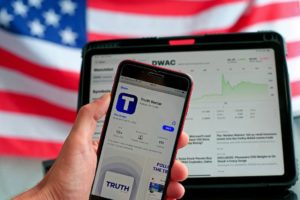
If adopted, the new rules would require additional reporting about SPAC sponsors, conflicts of interest, and sources of dilution. They also would require additional disclosures regarding business combinations between SPACs and private operating companies, including disclosures relating to the fairness of such transactions. The SEC says the new rules would more closely align the required financial statements of private operating companies in transactions involving shell companies with those required in registration statements for an initial public offering.
SPACs are publicly listed non-operating companies established for the sole purpose of raising money in the public markets to acquire other companies, particularly non-public companies. They can be used as a vehicle to take a private company public by way of a reverse merger with a SPAC.
“For traditional IPOs, Congress gave the SEC certain tools, which I generally see as falling into three buckets: disclosure; standards for marketing practices; and gatekeeper and issuer obligations. Today’s proposal would help ensure that these tools are applied to SPACs,” said SEC Chair Gary Gensler in a statement. “Functionally, the SPAC target IPO is being used as an alternative means to conduct an IPO. Thus, investors deserve the protections they receive from traditional IPOs, with respect to information asymmetries, fraud, and conflicts, and when it comes to disclosure, marketing practices, gatekeepers, and issuers.”
Poor Performance
Regulators have raised concerns recently that SPACs are being used to circumvent rules to protect investors as companies look to raise public funds. One of the problems the SEC is attempting to address is that PACs are currently able to provide forward-looking financial projections in place of historical financials to support their valuation when going public.
In July of last year, the SEC charged the SPAC Stable Road Acquisition Co., its CEO, Momentus Inc., and its founder and former CEO with claims related to misleading investors. Many other planned SPAC transactions have fallen apart, often descreasing the share price of the SPAC and harming investors. At least 22 deals have been called off since the middle of 2021, according to data compiled by Chicago-based SPAC Research, which tracks the industry. That compares with 26 SPAC acquisitions that were canceled in the more than five years prior, the data show. The stocks of several other SPACs that have completed mergers have declined greatly during the past few months.
Among the more well-known SPACs is Digital World Acquisition Corp. (DWAC), which announced plans to acquire Donald Trump-backed Trump Media & Technology Group last October. The share price of DWAC is down more than 50 percent from its high of $97 reached in late February, partly on news of difficulties with Trump’s social media app, Truth Social.
Will it Work?
Some market watchers are skeptical that new disclosure rules will do much to rein in corruption and deception among so called “blank check” companies. According to James Angel, associate professor at Georgetown University’s McDonough School of Business, additional disclosures requirements for companies looking to go public through a SPAC transaction will not solve the problem.
“One of the things the SEC is pushing for is more disclosure around the de-SPAC, and they’re also pushing for more liability on everybody involved,” Angel said during an interview with Yahoo Finance. “More disclosure is nice, but that’s really the only tool the SEC has … so more paperwork is really not going to fix the problem.”
In addition to new disclosures, the proposed rules would address issues relating to projections made by SPACs and their target companies, including the Private Securities Litigation Reform Act safe harbor for forward-looking statements and the use of projections in SEC filings and in business combination transactions.
The proposal also includes a new rule addressing the status of SPACs under the Investment Company Act of 1940, which is designed to increase attention among SPACs about this important assessment. Under the proposed rule, SPACs that satisfy certain conditions that limit their duration, asset composition, business purpose, and activities would not be required to register under the Investment Company Act.
The SEC is currently fielding public comments on the proposal, which will remain open for the next two months. A vote on the new rules is expected later this year. ![]()
Joseph McCafferty is editor and publisher of Compliance Chief 360°

